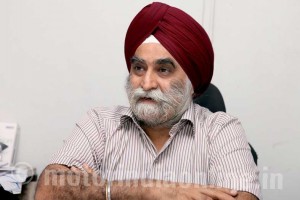An exclusive feature by MOTORINDIA

The automotive aftermarket plays an important role in the auto industry. Growing at an annual rate of five per cent, the global aftermarket is expected to be worth over $1 trillion by 2012. The current size of the components business in the Indian automotive aftermarket is estimated at Rs. 24,800 crores.
Every town and city has its own automotive aftermarket hub catering to the spares requirements of all vehicle segments. Distributors and dealers in these markets have played a critical role in the growth of the segment. Some of them have been associated with the industry for decades, representing different component manufacturers in the aftermarket.
The overall scenario is fast changing with vehicle manufacturers setting up more authorized service centres close to customer locations. Also, the vehicle owners prefer to go authorised service centres in order to get genuine spares.
The Madras Motor Parts Dealers Association (MMPDA) is an apex body representing automobile spareparts dealers of Chennai. With over 550 members now, the Association has proved a major mouthpiece representing the various issues related to its members. It is also involved in social and philanthropic activities in which members and their employees are involved. They have conducted many auto shows in the past and built valuable assets. All this is indeed a rare act considering the fact that the Association income is mainly generated through membership fees. The Association recently elected Mr. Harbhajan Singh Suri, Managing Partner of Presidency Motors, Chennai, as its Secretary. Presidency Motors represents well-known clad cylinder liners as well as the reputed automotive products like Glyco, Spicer and Goetze.
Casually discussing the problems and prospects of the automotive spare parts dealers, distributors and the aftermarket business, Mr. Suri told MOTORINDIA recently that a lot of developments have taken place on the automotive spares front. Twenty years ago, commercial vehicles accounted for more than 50 per cent of the total replacement trade, and two-wheelers for just 15 per cent. However, the last one decade has witnessed a huge growth in the two-wheeler population with almost everybody going in for a vehicle of his own for daily commuting. This has resulted in the two-wheeler segment contributing to the growth of over 50 per cent of the aftermarket business, with the share of cars and LCVs going down to 35 per cent and CVs the balance 15 per cent.
Mr. Suri clarified that, with the entry of multinationals in different segments of the Indian automotive industry, the aftermarket is getting more organised. With a growing number of authorised service stations offering easy accessibility to customers, the business of small-scale distributors is getting reduced. As a result, several small players are shifting their operations to the city outskirts, mainly to areas like Poonamallee, Tambaram, Ennore and Pallavaram.
Asked about the availability of spurious parts in the market, Mr. Suri said since the automobile market is now flooded with alternate spares of various manufacturers, the use of spurious spares has come down with growing awareness among vehicle owners of their adverse impact.
He also pointed out that with the aftermarket segment offering more profitability to component manufacturers, it has proved an engine of growth, particularly during industry recession.
A philanthrophist by nature, Mr. Suri is actively involved in providing quality education through Gurunanak schools and colleges.